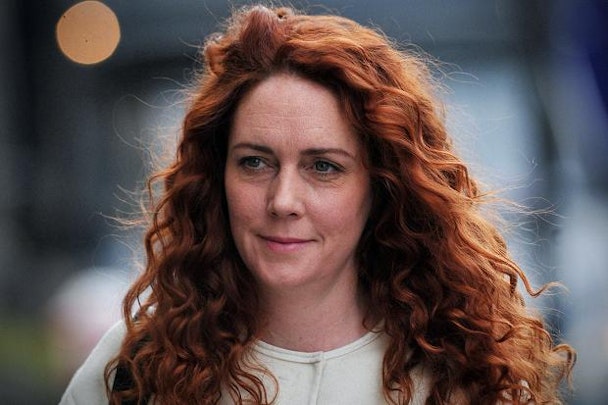The Queen is dead, long live the Queen: the return of Rebekah Brooks and what it says for bad PR
Rebekah Brooks is back. To use Robert Thompson’s words: “Rebekah will lead a great team at News UK into the digital future, while maximising the influence and reach of our newspapers, which remain the most informative and successful in Britain and beyond”…blah blah blah. Michael Wolff, the American author of a biography of Mr Murdoch called The Man Who Owns the News, said that the UK had gone to war with the media mogul and “the UK lost.”

Media land clamour suggests that the appointment represents a terrible PR move, but perhaps the hyper babble circulating on all channels misses an important issue encapsulated in the return of Brooks. Take a step back and consider a subtler point about negative perceptions and bad PR.
So indignant was a Daily Mail reporter that the 89-year old Harper Lee was being thrust into the spotlight that she barged her way into a Monroevill nursing home and demanded an audience with the now-senile writer. Decades of reclusiveness by the author did not harm the sales of her Mockingbird follow-up, as copies of Go Set a Watchman flew off the shelves, as if they were printed in Hogwarts.
Nobody’s idea of a hermit, Beyoncé shares Lee’s wariness about exposing herself to the media glare - she hasn’t given an interview since 2013. Nevertheless, last week Queen Bey appeared on the front of Vogue; readers can be excused for feeling slightly short-changed by the actual article, dubbed a “comprehensive tribute” but in reality all the copy about the icon was second-hand. In stark contrast, fans of the Kardashians can seek comfort from the knowledge that they are never far from a camera lens or TV crew.
Joining Beyoncé in a bubble of his own is track star Justin Gatlin who vowed to boycott the doping-obsessed British media, including sending his agent to face the Today programme on his behalf.
This raises the question of whether we are entering an age where our perceived great and good simply bypass pesky journos and their irritating questions and take image management into their own hands? Who, after all, actually needs PR when you can speak directly to your fans - via, the still essential entourage of PAs and agents or your own Twitter and Instagram feeds?
Bad press can cause immense reputational damage - but it rarely destroys. Social media may have turbo-charged our shaming impulses but it has also magnified the amnesiac nature of the ever-refreshing news cycle.
In the recent past, disgraced public figures like John Profumo and Jeremy Thorpe had to lie low for many decades, before receiving social absolution; now they have the mercy of being old news. Fast forward to 2015 and Thomas Cook was reeling from its callous response to tragedy. Yet 4 short months passed and the status quo returned – with more people booking it rather than boycotting it.
Disappearing even faster into the bush is Walter Palmer, last month’s most reviled dentist. After shooting the wrong cat and being dropped into the lions’ den of Twitter, Palmer received levels of vitriol usually reserved for warlords, soap villains and former Labour prime ministers. He apparently feared for his life and his dental practice became a target, online and off. Yet for all the hashtag roaring, the storm was as short as it was intense. Six week after going into hiding, Palmer is back polishing the molars of the good folk of Bloomington.
Have we maxed out the limits of PR’s usefulness? Or does PR itself need to change to keep up with new ecologies of communication?
What raises Beyoncé and Gatlin above the need for press attention is the sense of control that they feel they have over shaping their destinies. Fine for the air conditioned and red carpeted some. For others who don’t have the luxury of being surrounded by fawning yes men, thoughtful PR equips the client to know themselves. It’s not just about planting the story, it’s important to grow and develop it with the client.
Take for instance the recent transformation of Monica Lewinsky.
Like Palmer, she could have simply been content with fading away into the background noise of ex-stardom/notoriety. With the help of the PR agency HvM, Lewinsky began doing the speaking rounds (Forbes-TED-Cannes) to lay the ground for the story of her ‘inspirational’ struggle against online abuse. In this sense her success speaks to the irony of social media: it creates many victims but it also loves the survivors of its own abuse.
The question is does the real world of the mass consumers care about RB re-appointment?
For those sitting in powerful rooms, frustrating hand wringing will not derail the purpose of the Murdoch Empire. The power and influence of Rupert Murdoch returns to remind us all that where there is a teflon coated will, owned channels and deep pockets, the meek will struggle to inherit the earth.
